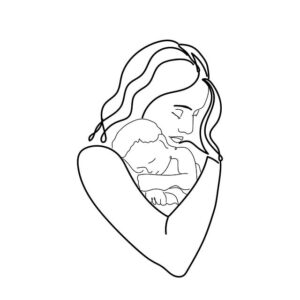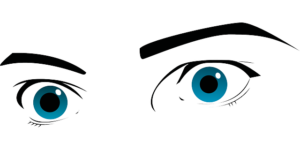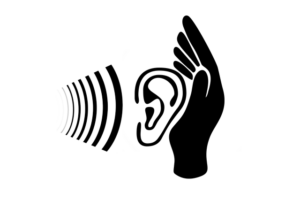Explore your Senses for well being
We are built to be happy, and our bodies are amazing feedback tools. If we tune in, they will tell us what we need and what they like – also what they don’t! What lifestyle tweaks might increase your level of happiness?
But first, let’s talk briefly about addictions. If you think you enjoy something but are actually addicted to it, you don’t get any true benefit. But how can you tell the difference between your body asking for something it wants or needs, and an addiction?
Three questions to ask:
- If I start this activity, or eat or drink this substance, can I enjoy it moderately, or am I unable to stop?
- If I try and stop doing, eating or drinking this, is it easy to replace it with something different? Or do I get some sort of withdrawal symptoms – physical or mental?
- What are the triggers for this activity? Is it boredom, frustration, or other emotional stress?
The answers to these questions will give us an indication of whether this is a healthy activity for us, or whether there may be some better alternatives.
Touch
 It’s said that we need 4 x 20 second hugs a day for survival, 8 hugs a day for maintenance and 12 hugs a day for growth. Is there a way you can increase your hug quota?
It’s said that we need 4 x 20 second hugs a day for survival, 8 hugs a day for maintenance and 12 hugs a day for growth. Is there a way you can increase your hug quota?
Touch is one of the benefits of having pets, or interacting with other people’s.
Massage (and other bodywork) has a range of physical and mental benefits.There are many skilled practitioners in Wellington (and most other places) to choose from.
Movement
Movement and exercise have many benefits beyond “getting fit”. Maybe the most important aspect is for enjoyment.
Think of different ways you can:
- Get your heart beating a little faster
- Strengthen your muscles
- Stretch and lengthen your muscles
Our bodies love to move. How does each of those types of activities make you feel?
Find ways to move that help you feel good. Some people are drawn to more energetic movement, for others it may be yoga, tai chi or walking.
I teach line dancing, seated exercises and Spin Poi (fun and stimulates both sides of the brain).
Check out my website at www.getfit.kiwi for classes in Wellington and a list of online resources.
Time Outside / in Nature
Getting outside also has a myriad of benefits. Especially out in Nature. Movement, fresh air (hopefully), the sun on our skin, light generally, the sense of peace that comes from being in a natural environment. Feel your feet on Mother Earth.
Getting sun on our skin is actually healthy, just be careful not to burn. When the sun is high in the sky, sun on bare skin creates Vitamin D. You need to avoid sunscreen or it blocks the Vit D. You still need to be careful not to burn, though to carefully build up exposure. In between, get into shade and cover up.
Some natural health experts recommend being exposed to different types of light for even more benefits. Notice how you feel from being outside at sunrise, and sunset, under the moon and stars, in the rain, in the fog. (More about light therapy below)

Can you spend more time:
- Working in the garden.
- Sitting on the beach or paddling in the shallows (as we look forward to the summer months)
- Having a walk in the bush
Smell
Start to notice the effect of every day smells.
It’s usually easy to tell when something is very unpleasant for you, but are there other things you block out? Does your washing detergent leave a smell that you ceased to notice but is actually a bit ick? Can you decrease your exposure to chemical perfumes and enjoy natural ones instead?
Conversely, is the range of pleasurable smells more wide than you might have expected?
Essential oils are one way to get both enjoyment & therapeutic benefit (see August article).
Taste
This one is a bit of a minefield. There is so much processed food compared to natural food. There is so much information about diet (some accurate, some misleading, much of it conflicting) – how do we know what is true? We all have different chemical make ups. We all have different foods we need or are addicted to. This needs an article (or many) all of its own!
But we’ll start with just two thoughts:
- If you reduce your processed foods and increase your natural foods, you will gradually change your taste buds and appreciate the natural foods more. Don’t so it too quickly though, or withdrawals are likely to kick in, even if you think you don’t have any addictions.
- In our Western world, we tend to gravitate towards certain flavours (eg sweet, salty) and avoid others (eg sour or bitter). Ask yourself if you are getting foods from all 5 flavour groups:
- Sweet
- Sour
- Salty
- Bitter
- Umami (Savoury)
Sight

Look around your home and work environments. Does what you see give you pleasure? If not, can you make changes?
Colour has a huge impact on our well being – looking at it, having it in your environment or wearing it. Have an awareness of what each colour can do. Aim for balance as too much of one colour will have a detrimental effect:
- Red activates, energises and intensifies
- Orange restores, animates, warms and stimulates
- Yellow fortifies, tones, opens and brightens (a happy colour)
- Green relaxes, calms and equalises
- Blue soothes, inhibits, focuses and cools
- Purple inspires, transforms, supports mental processes
Coloured light therapy carries the benefits right into the body and energy system. (Available in clinic when Deb on roster)
Exposing your face to bright light early in the morning (say 6am to 8am) is helpful for SAD (Seasonal Affect Disorder) or depression that shows just in winter.
Sound
 We are exposed to a lot of noise that we might not choose – especially if we live in the city. Think about ways to reduce that noise pollution. Another benefit of getting into Nature is the break from the usual city noises.
We are exposed to a lot of noise that we might not choose – especially if we live in the city. Think about ways to reduce that noise pollution. Another benefit of getting into Nature is the break from the usual city noises.
Think about the noises we choose. For example, how does your favourite music make you feel – angry, upbeat, sad, relaxed? Choose your music wisely to help you feel calm or uplifted.
Singing at home to your favourite music or joining a community choir is enjoyable (and stimulates the vagus nerve)
Singing bowls or other sound therapy can be used to move stuck energy (look for a local practitioner)
